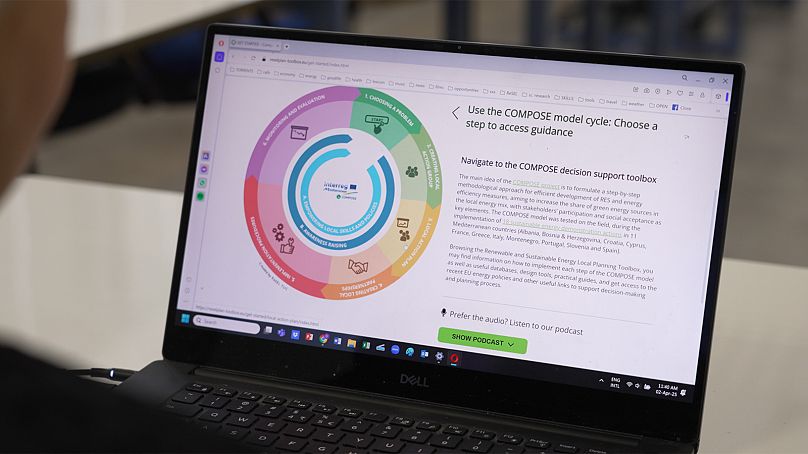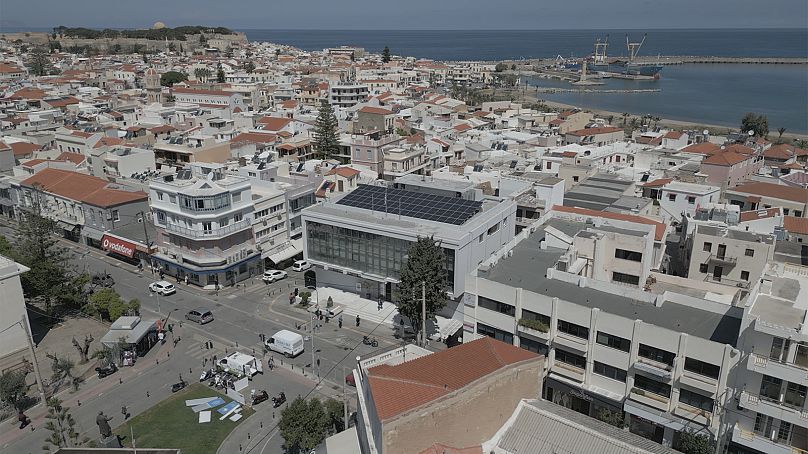The COMPOSE toolbox, developed by the Technical University of Crete, is a free, web-based platform designed to support municipalities with limited resources in their transition to renewable energy.
According to ancient Greek mythology, Crete is the birthplace of Zeus, king of the gods. With mountains rising nearly 2,500 meters, lush forests, and long coastlines, it’s no surprise that Greece’s largest island has inspired countless legends.
Today, however, the island faces a very real and urgent challenge. Like much of the Mediterranean, Crete is grappling with the intensifying effects of the climate crisis. Home to nearly 700,000 people, it is becoming increasingly vulnerable to water scarcity, forest fires, and rising temperatures.
For Stavroula Tournaki, a senior expert at the Technical University of Crete, these environmental pressures sparked a growing sense of responsibility. She and her colleagues knew they had to act.
Stavroula’s team had already gained valuable experience through their involvement in COMPOSE, a European initiative that ran from 2016 to 2019. The project supported renewable energy solutions across 11 Mediterranean regions, with a focus on helping small and medium-sized municipalities that often lack the resources or staff to carry out complex sustainability plans.
Building on the success of the COMPOSE project, Stavroula Tournaki and her team at the Technical University of Crete created a free, open-access online toolbox that turns the project’s methodology into a practical, step-by-step resource. The platform is designed to guide local governments and decision-makers through the process of developing and implementing sustainable energy plans tailored to their specific needs and contexts.
This digital toolbox offers structured guidance at each stage of project planning, helping municipal staff understand how each step influences the overall process and outcomes. It provides access to a broad range of materials including design tools, planning handbooks, indicator measurement methods, and technical references. These resources support everything from early-stage project design to stakeholder engagement and long-term monitoring.
Importantly, the platform promotes a holistic approach to energy planning, encouraging municipalities to consider not only the technical and financial aspects of their projects, but also the wider social and economic impacts on their communities.
Today, the COMPOSE toolbox remains active and continues to be maintained by the Renewable and Sustainable Energy Systems Lab at the University of Crete, offering municipalities across Europe a practical resource to support their climate and energy planning.












